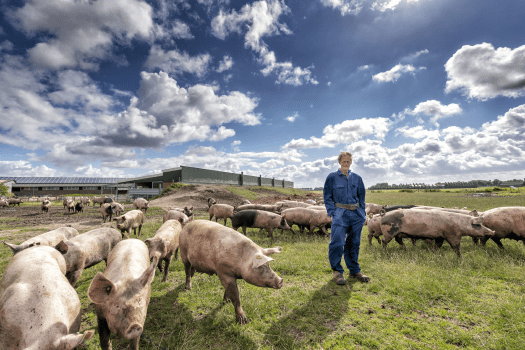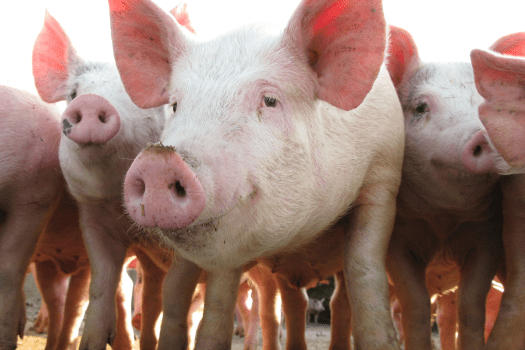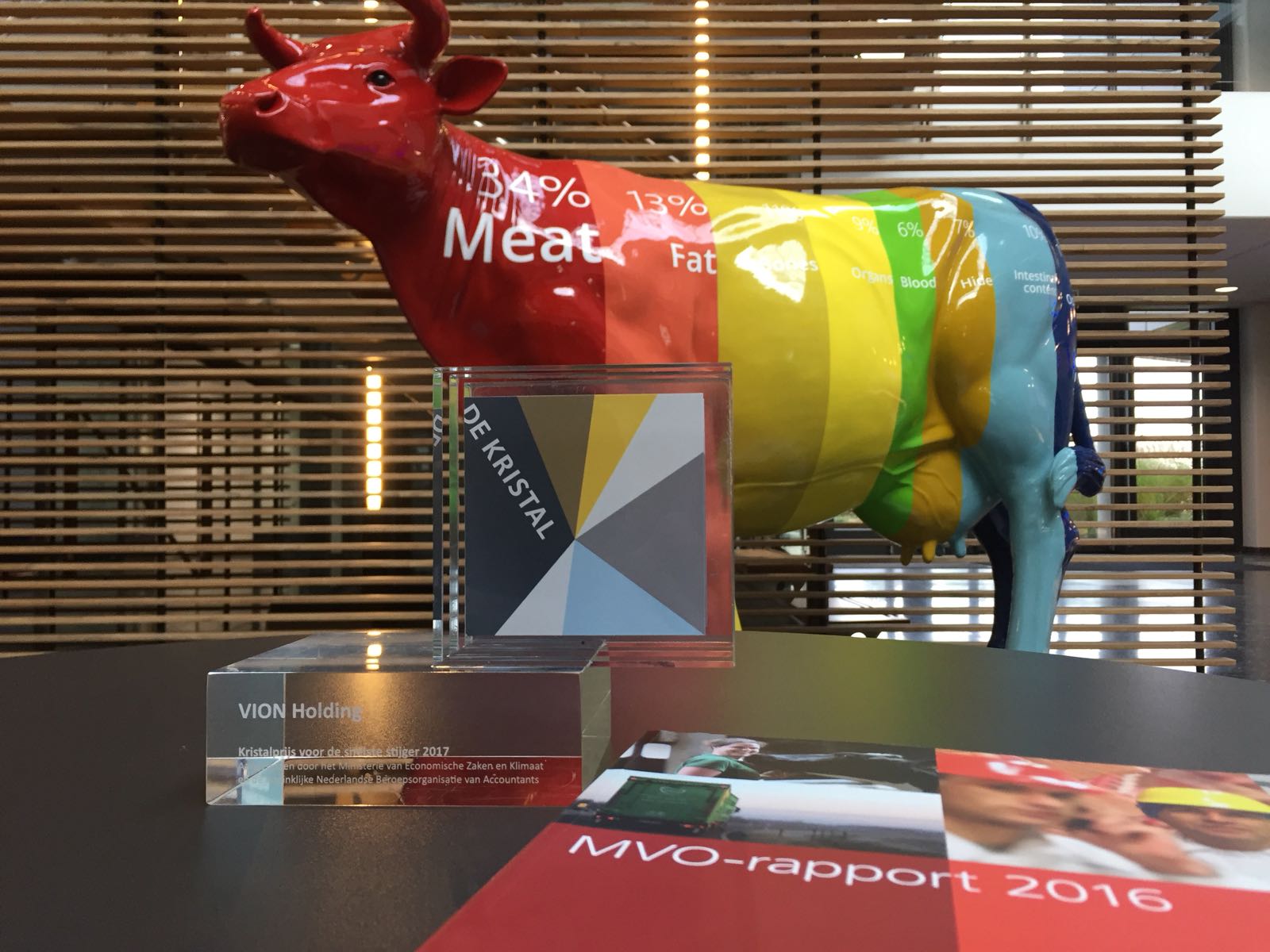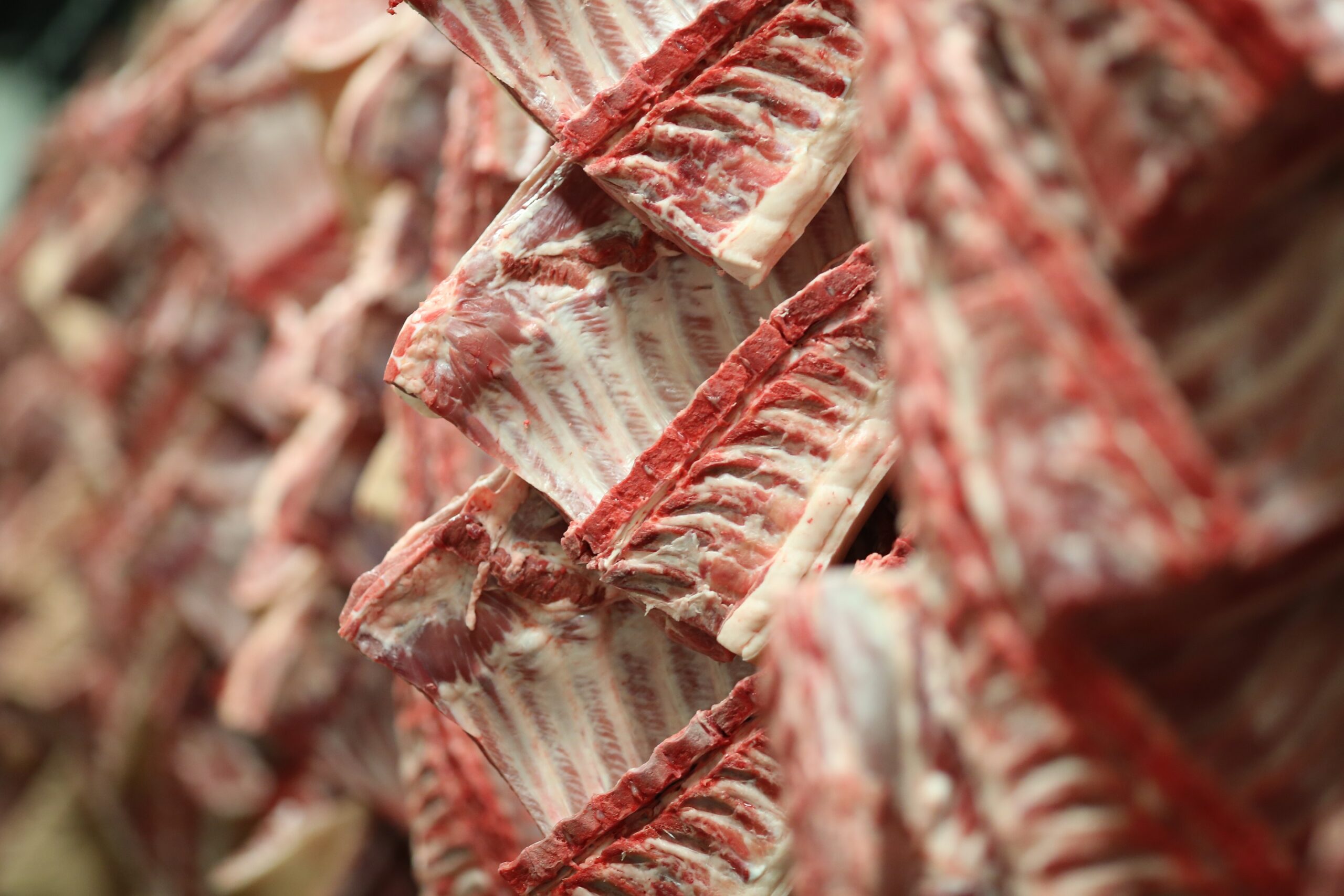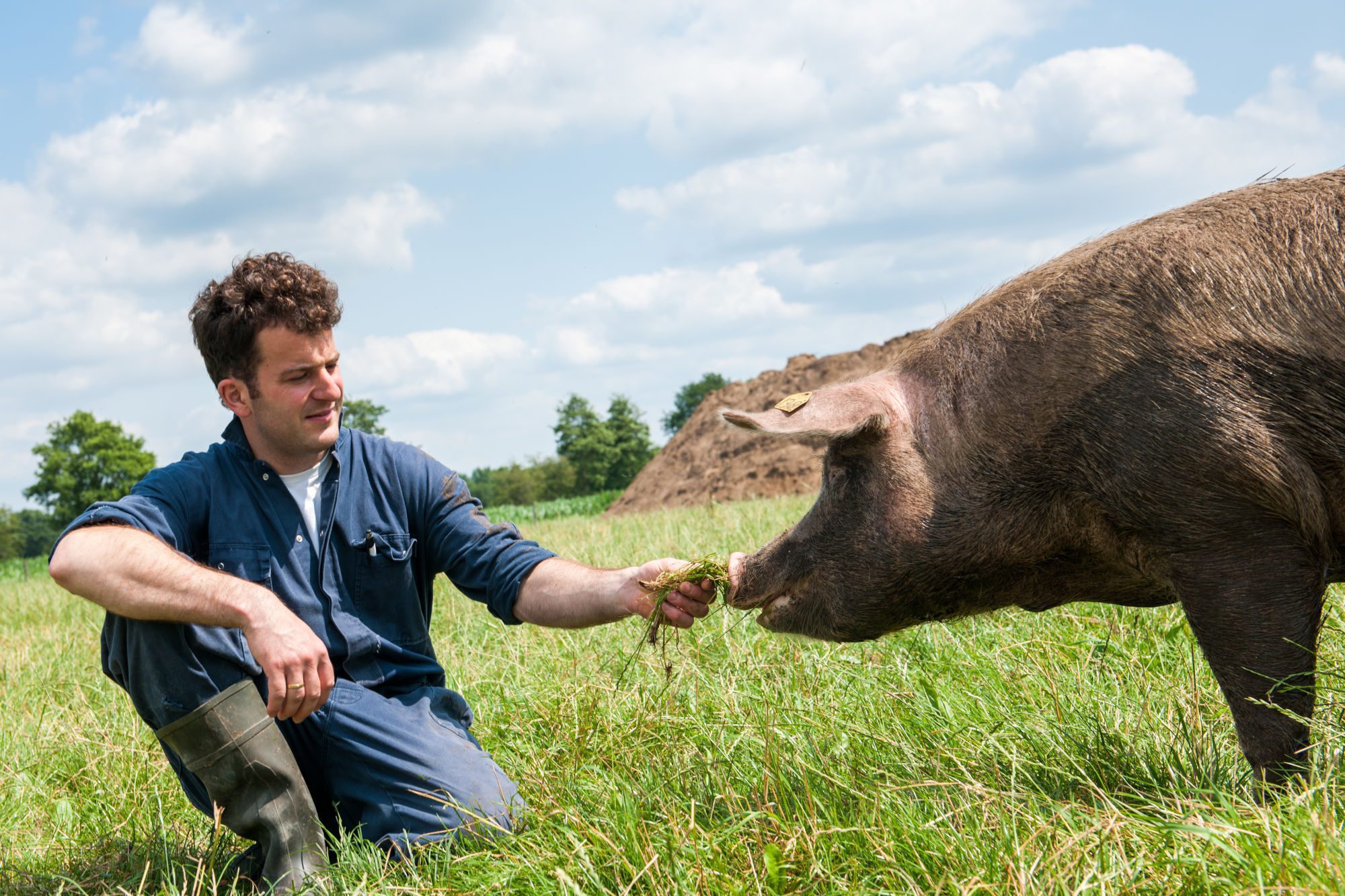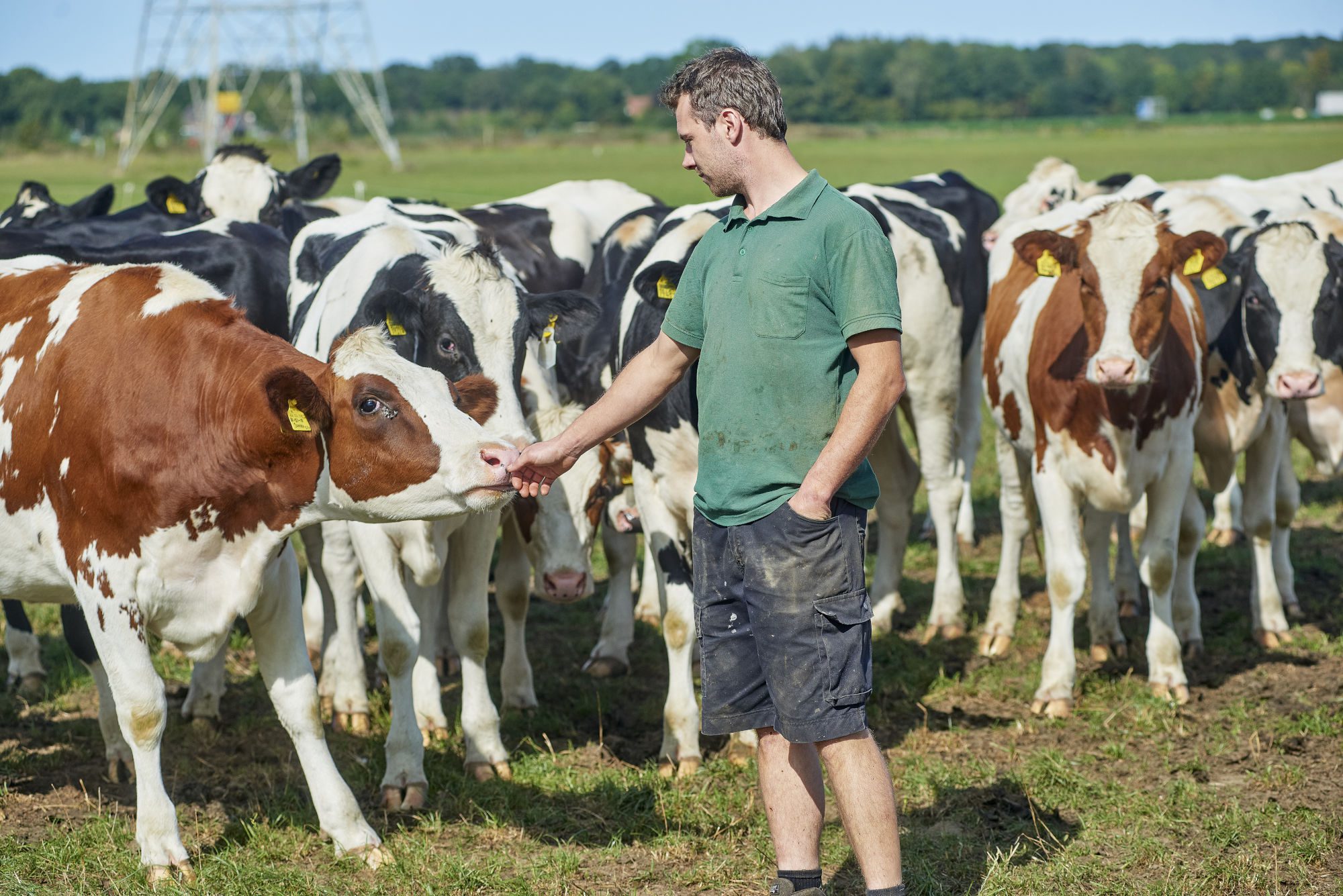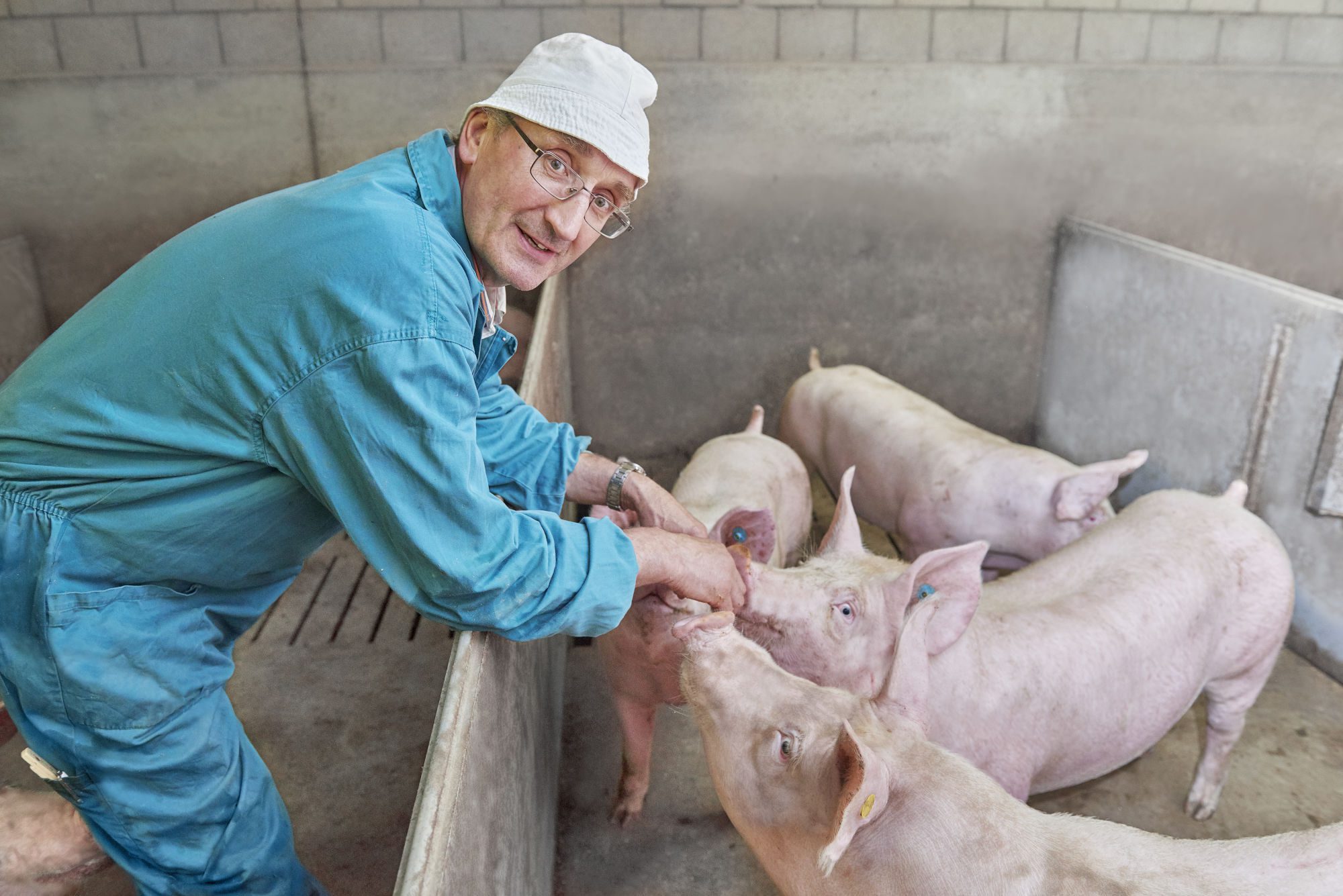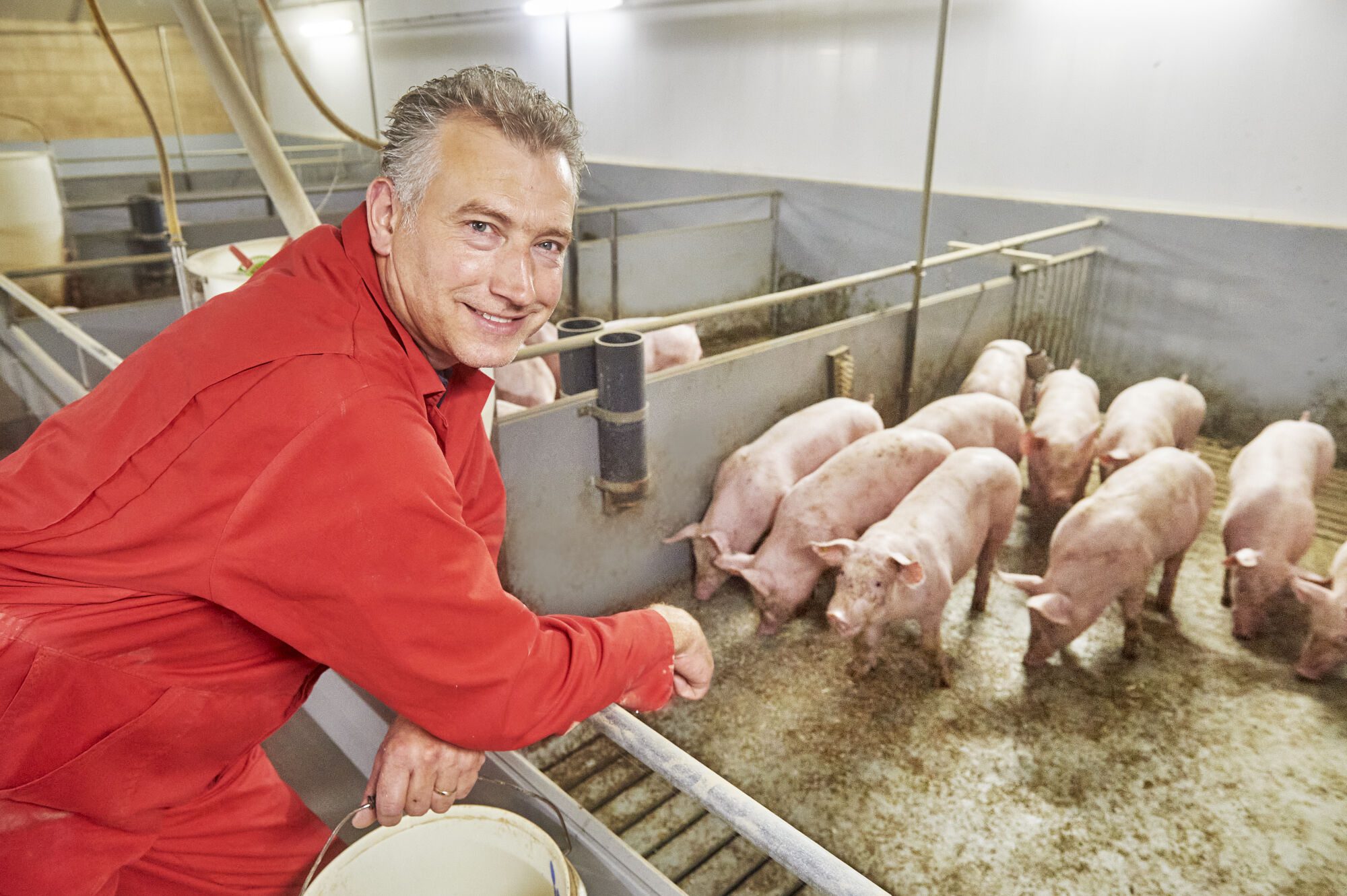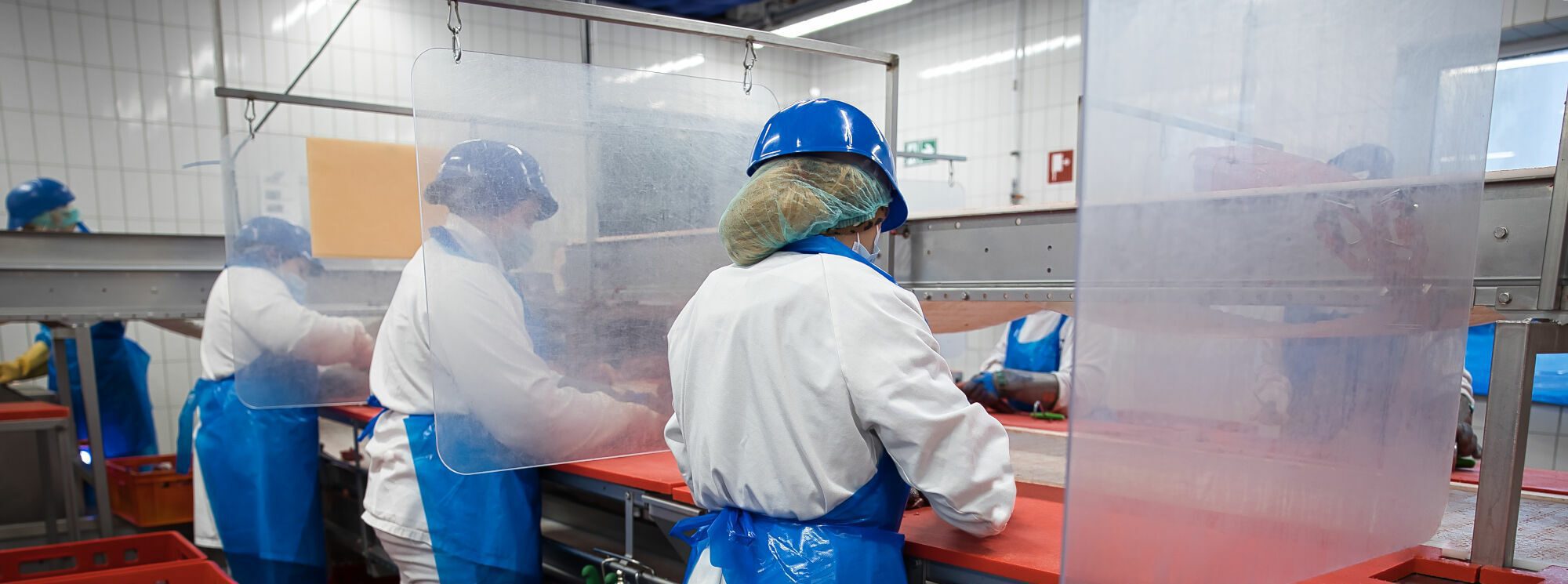
Employment and working conditions
Impact on society and Vion’s role
The success of our organisation depends heavily on the commitment, involvement, motivation and well-being of all our employees. This requires a proactive personnel policy, within which the further development of employees and the organisation is central.
Our focus on the health and safety of workers contributes to safer, more secure working environments. Therefore, our actions on worker safety have a positive impact on the daily working conditions of our employees. Our potential negative impact continues to revolve around injuries and illness. This potential impact is caused by Vion or its workers. Workers can raise concerns about issues affecting their rights, such as health and safety conditions, through our whistleblower policy.In Germany, our efforts to directly employ former flex workers had a positive impact on labour rights for workers, including migrant workers and those in precarious employment.
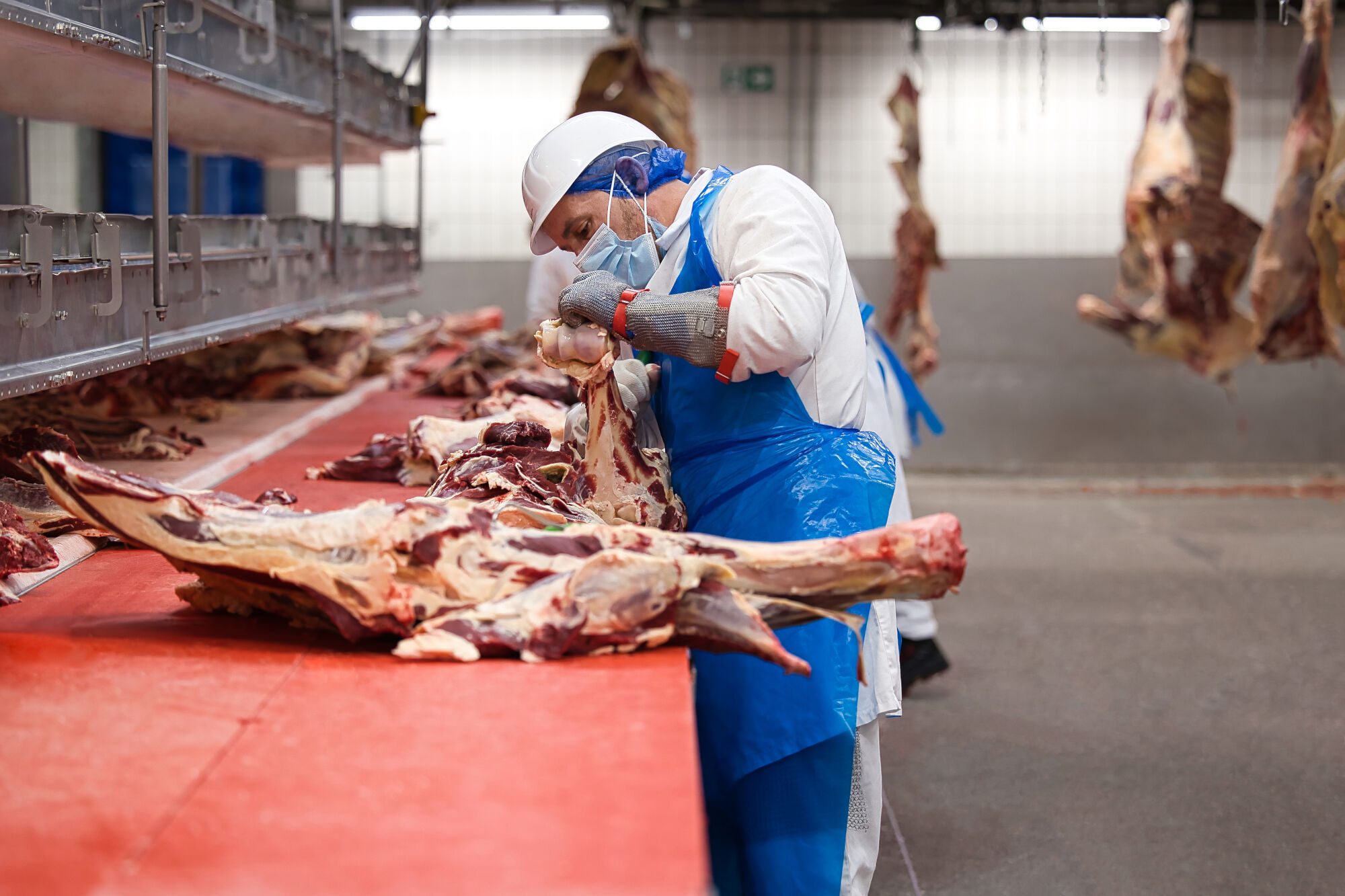
Workforce management policy
More than 11,000 employees work at Vion, both in its own employ and through third-party labour companies. With the exception of Germany, the number of flex workers is relatively high. In the Netherlands, Vion works closely with third-party labour companies to hire temporary workers, as is common in many industries. This is mainly due to fluctuation in supply of work and because the supply of people in the region is insufficient. Within Vion, therefore, foreign employees also work on a temporary basis. These employees are of great importance to our operations and we therefore try to bind them to us as well as possible by offering them the same conditions, circumstances and growth opportunities as our own employees. Often, foreign employees themselves consciously choose to only work in the Netherlands on a temporary basis and therefore prefer employment through a third-party labour company.
Vion actively encourages its employees to become permanent employees. Foreign employees in particular are interested in committing themselves for a longer period of time. We consider it important to actively promote the integration of foreign employees within Vion and within society. We offer our employees various language courses, tailor-made familiarisation programmes, career opportunities, housing support through the third-party labour companies and related support services.
We actively encourage our flex workers to become permanent employees
Vion is committed to a workplace environment that promotes diversity and inclusion and creates an open and inclusive culture where everyone feels valued and respected. We believe that embracing equality and diversity in the workplace benefits not just the organization but also the individual employee, (cooperation in) teams and in the end our consumer. Inclusion, including correct ethical behavior, sincerity, trustworthiness and integrity are guiding principles within Vion.
We practice that we value diversity by providing equality of opportunity and ensuring that no job applicant, employee, client or business relation is discriminated against by receiving a different treatment due to their background or personal characteristics.
Sustainable employability means ensuring that employees can work at Vion in an effective and sustainable way, until they reach retirement age. Sustainable employability is considered in the context of a person’s position, rights and responsibilities. As yet, there is no legislation on sustainable employability as a whole in our home markets.
We stimulate sustainable employability and job satisfaction by offering modern working conditions. This includes having a programme in the Netherlands to help employees stay fit, healthy and employable. This programme will also be introduced in Germany and Belgium and consists of five pillars as part of the “House of Work Ability”:
- Work
- Social
- Emotion
- Financial
- Physical
The people who work at our production locations matter most to us. Improving, maintaining and promoting the health and safety of our people is therefore an important goal. We are committed to being a frontrunner in our industry when it comes to working conditions.
In 2023, our objective is to have an absentee rate of no more than 6.5% in the Netherlands, 5.0% in Germany and 4.0% in Belgium. We monitor this figure weekly, analyse any accidents or near-misses that may have occurred (by using root cause analysis) and see how we can prevent such accidents and incidents. We have several procedures and regulations in place to create and maintain a safe working environment. Each German and Dutch production location has a Health and Safety Officer.In Germany, we also employ regional Health and Safety Managers. In the Netherlands, we have also defined an additional separate role for the HR Manager: that of Prevention Officer.We carry out internal occupational safety audits systematically. Plant managers regularly review occupational safety KPIs as part of their management review. At every Vion location, we pay attention to working conditions through an improvement cycle. The improvement cycle is based on the Deming Circle.
Employees and flex workers can access the health and safety services of the Prevention Officer,BHV-er (a company responder on health issues), the occupational health and safety service, a workplace expert, an ergonomist and a company physiotherapist, if needed. These people receive regular training to ensure the quality of their services. This access contributes to the identification and elimination of hazards and the minimisation of risks. Employees can follow OHS training on generic or specific work-related hazards.
The collective insurance policy includes employee access to an online intervention platform. Here they can find information on vitality and sustainable employability. In addition, Vion offers various interventions in the field of ESAN – exercise, smoking, alcohol, nutrition and relaxation – through external providers or via the online workshops offered by the Vion Academy.
Vion is committed to empowering all employees to learn and achieve, offering quality learning which equips them with the knowledge and skills our business requires.
We develop and train our employees, actively encouraging them to constantly develop their personal and professional skills. We also invest in language and culture courses. Through continuous education and training, we facilitate and promote the employability of our workforce.
This vision responds to our Way of Working: Sharp, Connected & Brave and is tailored to our People Strategy:
- Better skills management
- Improved talent management
- Better alignment with the ambitions of our teams
- Further development of craftsmanship
Animal welfare is an important topic in this area. We provide all staff who work with animals with the skills and knowledge to ensure the best animal welfare practices. They receive specific animal welfare training. The Vion online learning platform, called ‘Vion Academy’, offers training programmes that aim to develop and extend our employees’ knowledge and skills so that they continue to be employable in the future. We also offer customised solutions, such as individual internal and external training programmes and qualifications.We also accept interns within Vion. These interns combine school with work experience in the field and we actively help these interns improve their chances in the labour market.
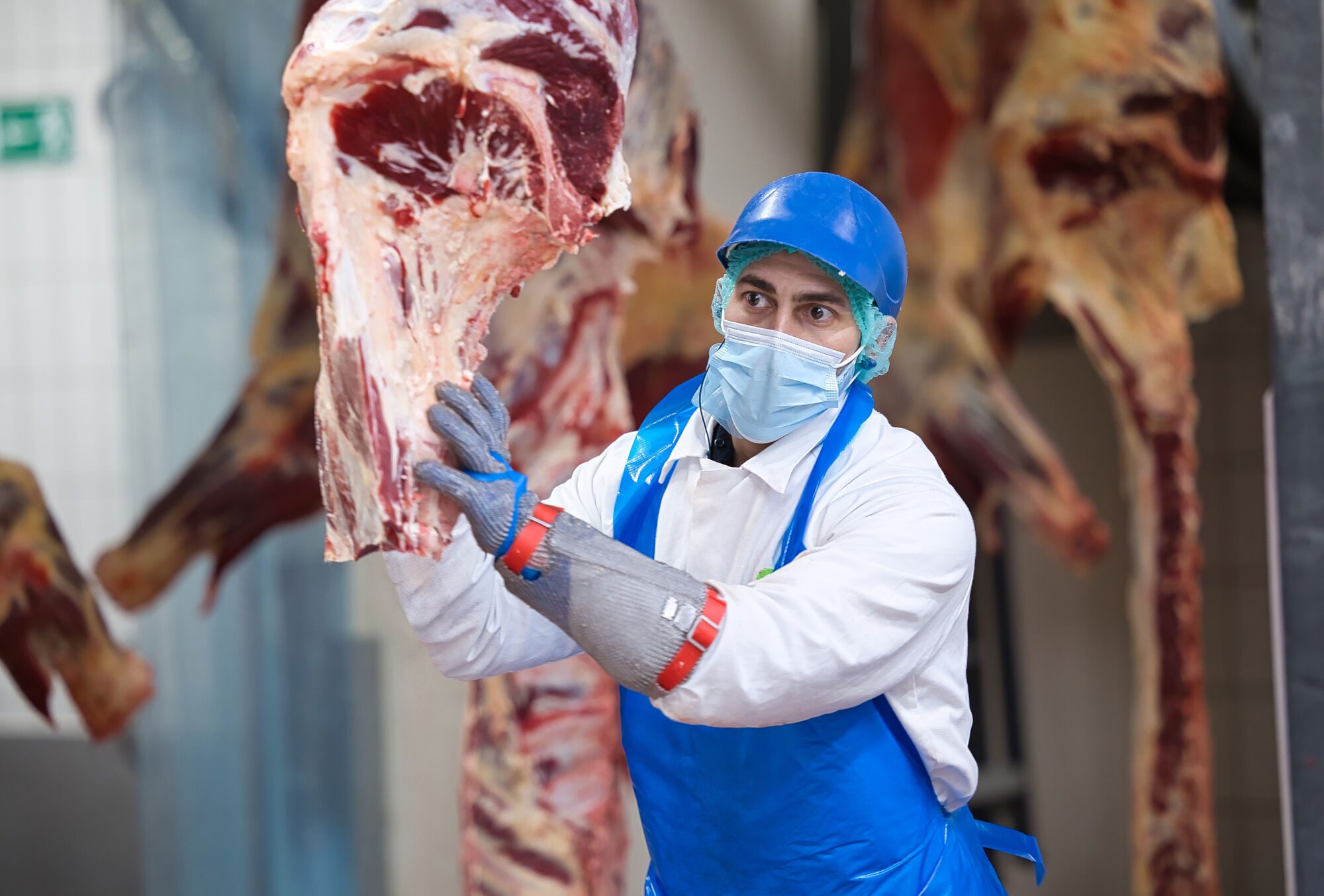
News & Stories
Workforce management – Netherlands
Vion issued a statement in 2021 regarding its goals for workforce management for its Dutch production locations. Our ambition is to go further than current Dutch legislation and agreements require us. In the coming two years, we will strive to have an average of approximately 70% of our former flex workers on our payroll in the Netherlands.
Staffing & recruitment
In 2021, 132 flex workers received a Vion contract and are now directly employed by us. In recruiting, we focus on various groups of people, such as status holders, (non)-Dutch employees, school leavers and later entry candidates.
Housing and commute
Vion only cooperates with preselected recognised and certified third-party labour companies for the hiring of temporary workers. The third-party labour companies must comply with the rules laid down in the Dutch SNA standard (Stichting Normering Arbeid), which monitors, among other things, correct payment. In addition, Vion requires the third-party labour companies to comply with the SNF standard (Stichting Normering Flexwonen) for providing good housing. Vion itself also conducts spot checks on housing on site and carries out spot checks on wages at the third-party labour companies. In this way, Vion is committed to providing suitable housing to our temporary workers, preferably as close to their work as possible. As a member of the employers’ organisation COV, Vion also applies a Fair Employment Code. This code offers – on top of laws and regulations, the SNA and SNF standards and the collective labour agreement – extra assurances for this group of employees, for example with regard to health and safety.
In 2020, a special nationwide taskforce (‘Roemer Commission on Migrant Workers’, led by Emile Roemer) investigated the situation for migrant workers and wrote an advisory report for the Dutch government. The government has not yet made any changes in regulations, but we are cooperating with different stakeholders, such as municipalities, to ensure decent housing for our third-party workers.
Although the SNF certification is not yet passed into legislation, Vion decided in 2021 to comply with this certification on our housing facilities anyway.
Workforce management – Germany
Due to a new law in Germany, ‘Gesetz zur Verbesserung des Vollzugs im Arbeitsschutz’ (Arbeitschutzkontrollgesetz) which took effect in 2021, the German workforce management project team was fully focused on transitioning our current subcontracted workforce, which consisted of 3,300 people. This new law requires meat companies to employ workers for their core business, instead of hiring them via flex agencies. Vion will also be responsible for their housing and commuting. The aim of the law is to improve workers’ rights and their working and living conditions. Vion fully supports this directive.
Workforce management - Belgium
After an extended period of cooperation, Vion acquired slaughterhouse and beef producer Adriaens in Belgium in February 2021. The integration process is in full swing at all levels.
Our employees and flex workers are encouraged to get vaccinated by awarding them a financial bonus
Health and safety
COVID-19
Vion values a safe working environment. Due to COVID-19, we have taken a set of additional measures at our production locations. In the summer of 2021, when European governments eased the COVID measures, Vion decided to keep them implemented to ensure the continuous safety of our workforce. We were heavily impacted by the closures of various plants in the Netherlands and Germany and we wished to prevent these situations recurring.
Vaccination
One of the ways out of this pandemic is vaccination, which is why Vion decided to encourage our employees and flex workers to get vaccinated by awarding a financial bonus. In addition, Municipal Health service employees regularly give information about vaccination in our canteens. Vion also shares comprehensive information about this topic on narrow casting and our specialised field coaches communicate on vaccination.
Learning and development
Due to a change in the German law for the meat industry (Arbeitsschutzkontrollgesetz) at the beginning of 2021, we welcomed more than 3,300 flex workers as direct employees at Vion. To support our new colleagues with their integration into Vion, we offered online cultural training courses for our operational managers, former job coaches, the works councils and HR managers to prepare for the onboarding of our new colleagues and to create awareness about cultural differences.
Vion Academy
Vion Academy is Vion’s online learning platform. In 2021, we added 200 online training courses. Now the platform contains over 500 courses on various soft skills, time management, and MS office. The courses are available in German, Dutch, English and Polish. All employees can follow these courses voluntarily, next to their compulsory courses.
Assessment approach
To gain more insights in competences, qualities, drivers, pitfalls for job applicants, employees, leaders and teams, HR facilitates unified instruments for assessments. HR is trained to use and interpret these tools for the further development of our employees in the business.
News & Stories

Clarification of the results
The absentee rate was higher than the target in every country. The increase in production employees, who generally have a higher absentee rate due to the nature of their job, boosted the absentee rate. The absentee rate in Belgium was relatively low because we took the first four weeks of each sickness into account compared to six weeks for Germany and two weeks for the Netherlands. For 2023, the absentee rate in Belgium is expected to go up due to regulatory changes. In 2021 and 2022 Covid-related absenteeism was reported separately to the Belgium government and was not included in the regular absentee rate. This will no longer be the case and will be included from 2023 onwards.
